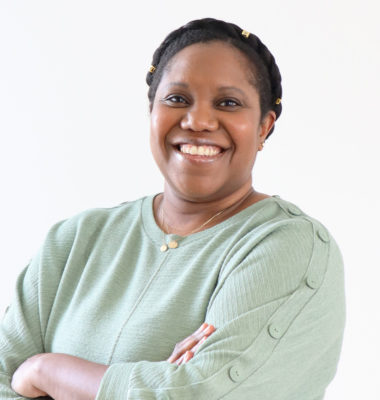In continuing with our Real-life SEO series, we spoke with Marco Giordano, a Search Engine Optimization Specialist and Web Analyst at Sika. This series is part of our project to share what SEO specialists do in their day-to-day work.
You can listen to the full interview, the fourth episode in our new Real-life SEO podcast series, or read on for the key moments below.
Originally from Italy, Marco completed the majority of his higher education in Palermo, Sicily, where he obtained a Bachelor’s degree in Economics and Business Administration.
He subsequently moved to Switzerland to pursue a Master’s degree in Management & Informatics, with a strong focus on Computer Science and Data. Marco is currently still living and working in Switzerland.
The beginning of a long relationship with content management

As with many who work in SEO, the path that led Marco into the industry was not a clear-cut one. He gained a foothold into the world of SEO through an unanticipated backdoor, a gaming blog.
Marco: I started working in SEO about four and a half years ago thanks to my friend’s blog; he asked me to help him with his gaming blog. From there, I started to learn the basics of SEO while working with the plug-ins.
The more I worked on the blog, the more I noticed that there were a lot of improvements we could make and that’s what propelled me to dig deeper and do a bit more research about SEO. From that point on, I was hooked and decided to turn SEO into my career.
“What I enjoy a lot about my job is that I get to exercise my skills and deal with complementary problems. SEO isn’t only about pure SEO skills, you have to be polyhedric.”
Now, almost five years later, Marco works for Sika as an in-house SEO where he primarily focuses on content and data management.
Oncrawl: What is your favorite part of your job?
Marco: I would say content; working with all types of content, but particularly blog posts and articles. Data is also a big part of what I do and I enjoy it a lot. It’s currently considered a niche for some SEO specialists, but I find that it’s a great field that offers a lot of opportunities.
Oncrawl: At Sika, what exactly does your job consist of on a day-to-day basis? Is there something you do every day? Or does it change everyday?
Marco: That’s a tough question, but I would say it is pretty varied. Usually, I do both technical work and content management. Some days, I have to manage technical SEO aspects like site migrations. Other days, I have to focus more on content management elements like improving category pages, landing pages or product pages. So honestly, I don’t have a “typical day” of work, it changes every day.
Oncrawl: Is there anything that you learned from your experience working in the gaming industry that’s helped you in your current position?
Marco: Yes, quite a lot actually. For instance, I learned about the importance of quality content. Most industries are quite competitive when it comes to getting your site ranked and the quality of your content plays a big part in that.
I also learned that you should definitely rely on multiple marketing channels. You shouldn’t base your entire SEO strategy solely on Google: it can be dangerous and you’re missing out on a lot of other important channels that are available.
Another key lesson I learned, probably the most important, is how to manage a team. Usually for publishers, or content websites, you need a lot of content: it’s the core component of the site. Therefore, you need to be able to manage the team of people producing that content, to ensure the quality of the content and to make sure that everything runs smoothly.
The draw of content SEO and B2B marketing
The SEO industry holds a vast number of specializations. With so much information and so many opportunities at your disposal, it can be hard to choose what to focus on. Marco, however, found an interest in content early on and has stuck with it.
Oncrawl: What is it about content that you find so interesting in regards to SEO? Why did you choose it as your specialization?
Marco: For me, it’s all about the strategy: all the aspects involved in executing a content SEO strategy. What I find the most intriguing, and challenging, is figuring out how to build a strategy that will allow you to compete against stronger websites with more experience, and likely more budget.
Oncrawl: You work with both B2B and B2C clients. Does building an SEO strategy vary from one to the other?
Marco: Absolutely! In my previous positions, I worked more with B2C when developing SEO strategies, so I was a bit confused at first when starting with B2B. One big difference is that search volume is not a major priority for B2B; it’s more about the Ideal Customer Profile (ICP).
The intent is stricter and it’s more focused on what your audience wants. If you don’t appear in any Google searches or you have very low volume, it’s less of a problem because the articles published may convert better or maybe your site visitors are somewhere in the purchasing funnel and may buy your products at a later date.
That being said however, a B2B strategy can also vary from industry to industry. If, for instance, you work with publishers, content quality is not always the first priority for some of the bigger sites. Their main focus is often on how many articles they can publish and if they can be timely with news articles.
If you have a content website or a blog, on the other hand, some niche sites in the travel or even the pet industry will have totally different strategies. These types of sites will often choose to monetize pages with display ads. If you’re going to monetize your website, you still want to be sure to have some traffic before employing such a strategy. These sites, of course, want more traffic because the more you have, the more people will see the ads.
Oncrawl: Do you find it harder to implement a B2B or a B2C strategy?
Marco: In my opinion, B2B is much more challenging than B2C. In regards to my particular specialization, it can be complicated to implement a content focused strategy because whereas a thought leadership piece would be a very important element in a B2C strategy, it would be a lot less effective for a B2B site.
Also, I find that in B2B, the competition is much harder and the only way to differentiate yourself in crowded markets is to be unique and original. It’s easy to say that, but once you have to actually be unique and original, many clients don’t have the budget or the willingness to do so.
For example, the B2B SaaS market is one of the most competitive out there. Implementing a strategy requires a lot of thought and planning; you have to find a way to address similar keywords or subjects while also providing a unique angle or some added value to what already exists. Ultimately, you have to strategically create something unique that justifies your product or services.
In some B2C niches, it’s much easier to essentially “rinse and repeat” with some content. The fact that you aren’t necessarily adding any additional value won’t automatically penalize you.
[Ebook] Crawling & Log Files: Use cases & experience based tips
Encouraging SEO Culture
SEO has not always been recognized as an integral part of business. However, more and more companies are beginning to understand the impact it can have across all departments. As an in-house SEO, Marco also has to play the role of SEO evangelist.
Oncrawl: When you’re doing B2B and you run into those cases where the company doesn’t necessarily see the value of what you’re doing, how do you deal with that? Is there a way you can try to convince them that SEO is important or is there a way that you can build a culture of SEO?
Marco: I think that if you are working as an in-house SEO, you are more of a manager than a pure SEO. You have to be extremely strategic and smart in how you communicate and with whom you communicate.
If you’re a manager, you have to show different audiences different KPIs: if you are talking to the marketing team or to the sales team, you have to think differently because they are likely interested in certain metrics that others won’t find helpful. It’s primarily about communication: you have to show them not just the advantages of SEO, but also how it integrates with other channels or with the overall vision of the company. You need to build a consensus to make sure that other teams see value in what you do.
Oncrawl: Do you have any specific SEO goals for your company?
Marco: That’s a tough question! But for my work at Sika, I think the most important goal I want to achieve is to evangelize, to convince a few key departments in the company that SEO is a priority. I want the focus to be on prioritizing SEO as opposed to the quantifiable KPIs such as lead generation or increased traffic. I am more interested in the mindset.
Convincing and teaching as many people as possible that SEO is a priority is important because, in a way, you have to manage people without having the executive power to do so. Therefore making sure people understand that SEO is a priority is at the top of my list.
A day in the life of an in-house SEO
“I enjoy working with content so much because some niches don’t have helpful content and I like to fix it. Content, per se, is a great way to prove you are a good strategist, that’s why I love it. For me it’s more about strategy than anything else.”
Oncrawl: Can you talk a bit about what you’re working on or testing at the moment?
Marco: At the moment, I have several projects underway. At Sika, I’m working with different countries, and therefore different subdomains as each country has its unique subdomain. For each subdomain, I manage their B2B pages and site migrations.
In regards to my personal projects, my focus is always blogging and content. As such, in my free time I work on some U.S. based content websites with a group of friends.
As I mentioned before, I also love working with data, so I’m working with Python on a few new applications as well as a project about NLP. My NLP project focuses on entity extraction: extracting entities from a text and determining which entities our competitors use the most and how that affects SERP analysis.
Oncrawl: Speaking of competitors, how can you use data to get a competitive advantage in SEO?
Marco: The real value of data is not just the data; it’s the information you can extract from it. The problem I find is that many people just use third party tools as their map and they’re missing out on the opportunity to use the data to acquire knowledge about a topic or a process.
Let’s say, for instance, you have a complex scenario. With good data and the right analysis, you can turn the problem into something very simple. For example, with Google Search Console data, once you have it, you can analyze it and find details that you wouldn’t normally be able to identify.
Or another example, let’s say you have a travel website about Scandinavia and you notice that for the keyword list, a lot of your competitors are mentioning a given entity that you don’t have, like a city in Finland. This would be the occasion to try and understand why. Why are they all focused on and producing content for that city? You can use your data to start to dig deeper and understand why and subsequently include the answers you find in your strategy development process.
You can pretty much do anything with your data, you just need to understand your goal.
Oncrawl: Is there a project, work or personal, that you’re particularly proud of?
Marco: When I started my first website, it was very small with almost no traffic – something like 10k paid views. For the particular niche in which I was working, 10k was not very much. In a short amount of time, we were able to turn it around and generate 150k pages views and 100k users per month.
Similarly, I subsequently worked on another project within the same niche for which we doubled, almost tripled, the results to the point we were amassing close to 500k page views per month.
Oncrawl: In regards to Python, you’ve written an article for the Oncrawl blog about it and you’ve also noted it as your specialty on LinkedIn. Would you call yourself an expert?
Marco: No, simply because Python is relatively easy to understand and it’s very accessible. Even if you don’t have any previous experience, it’s quite good for beginners. That’s why I love it. I also wouldn’t say I was an expert because I’m not a developer or a software engineer, so I lack the same level of expertise they have.
But, if you need it for some SEO fundamentals, you just need to understand data analysis and learn some of the Python libraries. Once you’ve done that, it’s quite easy to get value out of it without being an expert or without knowing everything about the language.
Looking back…
Depending on your career and your industry, five years can either seem like an eternity or it can fly by. Either way, it’s a sufficient amount of time to look back and garner some insight from past experiences.
Oncrawl: Now that you have some experience in the industry, looking back is there any advice you would give to your younger self?
Marco: Probably to use more social media because it is so underestimated in SEO. I think it’s a great way to connect with other people and to do some personal branding, which is extremely important in my opinion.
I also think it’s particularly necessary in Europe, or in countries where SEO doesn’t necessarily have a strong presence or influence. In my opinion, it’s an absolute must to work on social media, even if you are a beginner, because you can learn from and connect to other people.
Who knows, maybe a connection on social media can help you get that internship you’re looking for or maybe it will help you find that person who will agree to be your mentor. You never know!
The second thing I’d say would be to create a blog in English. Maybe not right at the beginning of my career, but probably a year in, after I’d had the chance to learn a bit about the job and the industry. I think it’s a great idea because it allows you to get hands-on experience with SEO and see how it works in real life.
Building your SEO community
Oncrawl: Speaking of social media, we noticed that you’re pretty active on social media. Is there anyone in the industry that has had a big influence on you?
Marco: Yes, actually a lot of people. I have quite a long list.
For content related posts, I would say Derek Flint, who runs a content marketing agency and is very good with B2B SaaS.
For anything data related, I would probably say Lee Foot, Elias Dabbas, and Andrea Volpini. There is also Jess Peck, I love what she posts about machine learning and SEO, as well as Lazarina Stoy.
For freelancing, Louis Smith, he’s amazing in regards to e-commerce. It’s not my field, strictly speaking, but it’s an opportunity to learn something new and to get a different angle on the industry.
Finally, there is also Daniel Foley Carter, Lily Ray, Aleyda Solis, Myriam Jessier. I could go on, but those are some people who have influenced me.
[Ebook] Data SEO: The Next Big Adventure
Takeaways from chatting with Marco Giordano
In speaking with Marco, we have learned the importance of not just having technical SEO skills and understanding, but also management skills. Starting a content team requires you to know how to handle both projects and people in efficient and effective ways.
We also spoke about how data can be important for creating a competitive advantage in SEO. Learning how to manipulate and analyze data can help you compete better and create more dynamic content. The possibilities are numerous, you just have to know how to use the data.
Although all industries have their challenges, the right content can always be useful for SEO. Content can help sell a product or service just as easily as it provides useful information that users are looking for.
We’d like to say thank you again to Marco Giordano for taking the time to speak with us and for sharing his views on the day-to-day issues faced by SEOs everywhere.



